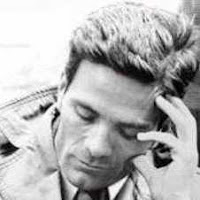Giovanni Battista Tiepolo – artist
Painter’s decorative work can be seen all over Venice
Painter and printmaker Giovanni Battista Tiepolo was born on this day in 1696 in Venice. Also sometimes known as Gianbattista or Giambattista Tiepolo, his output was prolific and he enjoyed success not only in Italy, but in Germany and Spain as well. Highly regarded right from the beginning of his career, he has been described by experts as the greatest decorative artist of 18th century Europe. Although much of his work was painted directly on to the walls and ceilings of churches and palaces in his native Venice, many of Tiepolo’s paintings on canvas are now in art galleries all over the world. Tiepolo was the youngest child of a Venetian shipping merchant who died a year after his birth leaving his mother to struggle to bring up her six children alone. In 1710 he became a pupil of Gregorio Lazzarini, a successful established painter, but Tiepolo quickly developed a style of his own. His earliest known works are depictions of the apostles, which form part of the decoration of the interior of the Church of Santa Maria dei Derelitti at Ospedaletto in Venice , painted in 1717. Tiepolo was commissioned to produce portraits for the Doge and he started painting frescoes directly on to the walls of churches in 1717. Read more…
________________________________________________________________
Pier Paolo Pasolini - writer and film director
Controversial figure who met violent death
The novelist, writer and film director Pier Paolo Pasolini was born on this day in 1922 in Bologna. Pasolini's best-known work included his portrayal of Jesus Christ in The Gospel According to St. Matthew (1964), his bawdy adaptations of such literary classics as Boccaccio’s Decameron (1971) and Chaucer’s The Canterbury Tales (1972), and and his brutal satire on Fascism entitled Salò, or the 120 Days of Sodom (1975). He also wrote novels and poetry, made documentaries, directed for the theatre and was an outspoken columnist for the Milan newspaper Corriere della Sera, expressing political views that would regularly spark heated debate. A former member of the Communist Party and openly homosexual, Pasolini died in violent circumstances in Ostia, near Rome, in November 1975, supposedly murdered by a young man he had picked up at the city’s Termini railway station, although there was some mystery around the incident and speculation over motives continues to this day. The son of an army lieutenant, Pasolini lived in various northern Italian towns in his childhood, determined by his father’s postings. Family life was somewhat turbulent. Read more…
_________________________________________________________________
Alessandro Volta – scientist
Invention sparked wave of electrical experiments
Alessandro Volta, who invented the first electric battery, died on this day in 1827 in Como. His electric battery had provided the first source of continuous current and the volt, a unit of the electromotive force that drives current, was named in his honour in 1881. Volta was born Alessandro Giuseppe Antonio Anastasio Volta in 1745 in Como. He became professor of physics at the Royal School of Como in 1774. His interest in electricity led him to improve the electrophorus, a device that had been created to generate static electricity. He discovered and isolated methane gas in 1776, after finding it at Lake Maggiore and was then appointed to the chair of physics at the University of Pavia. Volta was a friend of the scientist Luigi Galvani, a professor at Bologna University, whose experiments led him to announce in 1791 that the contact of two different metals with the muscle of a frog resulted in the generation of an electric current. Galvani interpreted that as a new form of electricity found in living tissue, which he called animal electricity. Volta felt that the frog merely conducted a current that flowed between the two metals, which he called metallic electricity. Read more…
_________________________________________________________________
Marietta Piccolomini – soprano
Popular star who found fame as Violetta
The operatic soprano Marietta Piccolomini, who was most famous for her performances as Violetta in Verdi’s La Traviata, was born on this day in 1834 in Siena. Her career was relatively brief, spanning just 11 years. Yet she managed to achieve unprecedented popularity, to the extent that crowds of fans would gather outside her hotel and men would volunteer to take the place of horses in pulling her carriage through the streets. Some critics said that the adulation she enjoyed was more to do with her youthful good looks and her acting ability than her voice, who they argued was weak and limited. Nonetheless, she was seldom short of work and she was the first Violetta to be seen by opera goers in both Paris and London. She had a particularly enthusiastic following in England, where she undertook several tours of provincial theatres as well as appearing in the capital. Born Maria Teresa Violante Piccolomini Clementini, she came from a noble Tuscan family. Her musical mother, a talented amateur, would sing duets with her. However, while her family were happy to arrange lessons for her with Pietro Romani, one of Italy’s first professional singing teachers, her father was reluctant to allow her to make opera singing a career. Read more…
Home







